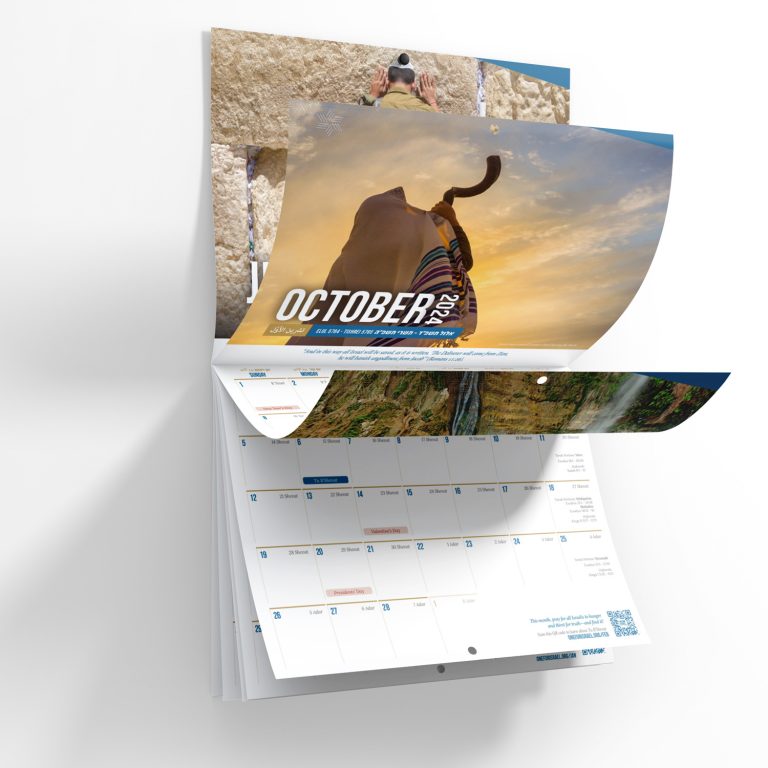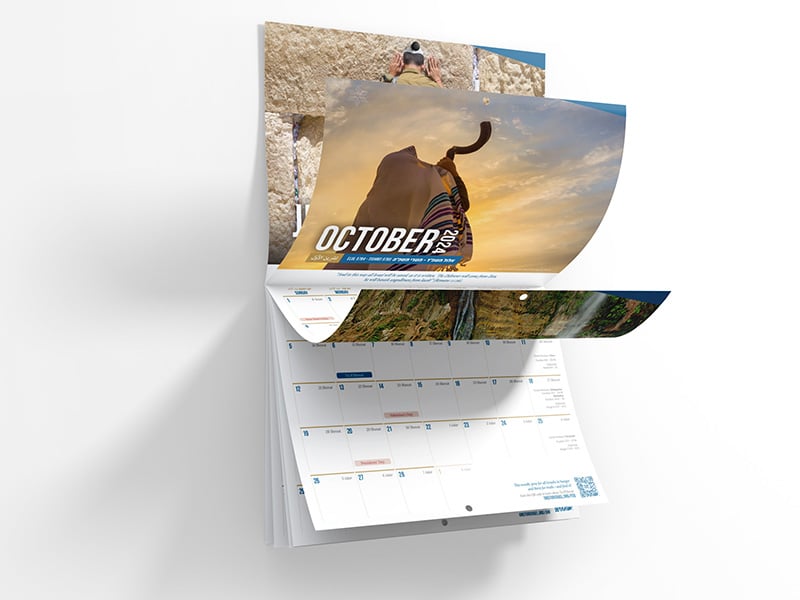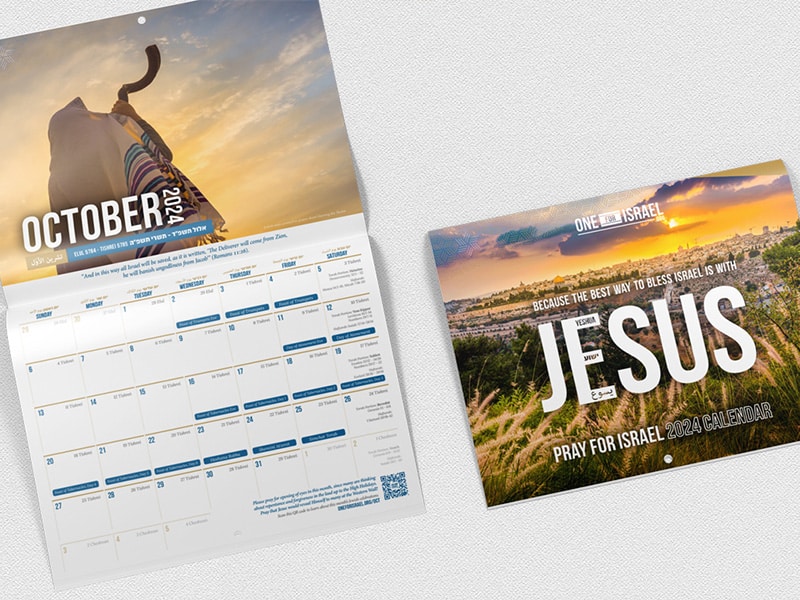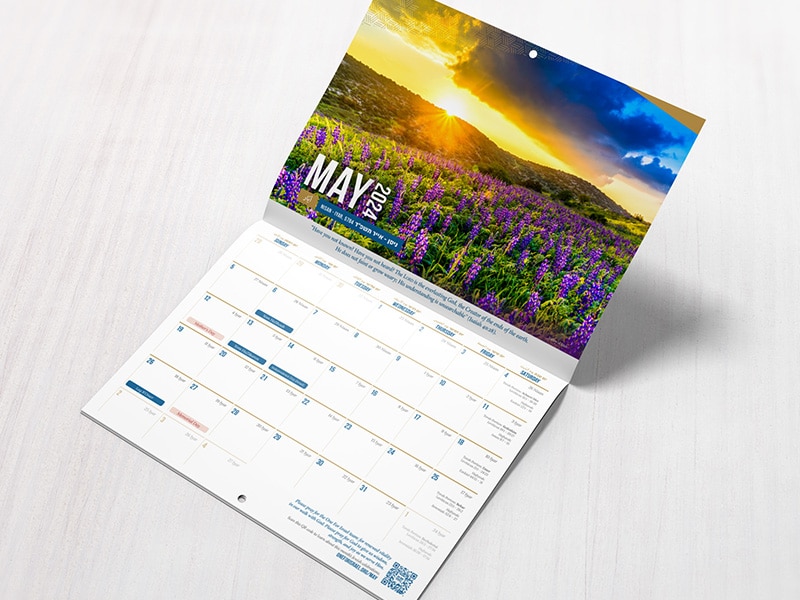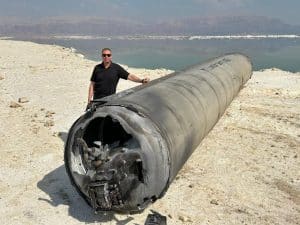I wonder what Yeshua's thoughts were as he approached the tomb of his friend, Lazarus. A stone tomb with a stone in the entrance that needed to be moved. Yeshua wept, we are told in John 11:35, the shortest verse of the Bible. Peering into the void of death, Yeshua was probably acutely aware of what was coming for himself. But he wasn't afraid. He just yelled in the face of death, “Lazarus, COME OUT!”
In contrast to Yeshua's ability to supernaturally bust out of his graveclothes, folding them neatly and leaving them on the cold stone shelf, Lazarus stumbles out of the grave, unable to walk and in need of assistance. The whole passage deals with the terrible threat of the grave, slam-dunking death and disease with a glorious demonstration of the Messiah's resurrection power.
Killing death
It is not only the death of a sick friend that Yeshua stares down, but his own imminent death, and the very specter of death itself. Yeshua hears that Lazarus is ill, but announces:
“This sickness is not unto death, but for the glory of God, that the Son of God may be glorified through it.”
Now Jesus loved Martha and her sister and Lazarus. So, when He heard that he was sick, He stayed two more days in the place where He was. Then after this He said to the disciples, “Let us go to Judea again.”
The disciples said to Him, “Rabbi, lately the Jews sought to stone You, and are You going there again?”
Are you sure this is a good idea, Yeshua? You'll probably get killed! Thomas pessimistically resigns himself to death alongside his Master.
Then Thomas, who is called the Twin, said to his fellow disciples, “Let us also go, that we may die with Him.”
Thomas was ready to die with Yeshua, but he was under no illusions about the danger. Yeshua, on the other hand, had his eyes fixed on the life and glory that was about to come, both for Lazarus, and himself, and the whole world. Not much beats rising from the dead, does it?
And that is the point that he was about to make. Because he LOVED that family so much, he waited for Lazarus to die by staying two more days where he was. He delayed on purpose, so that more glory would be seen, and he wanted to show his friends first, before anyone else, this wonderful reality. The Messiah has power over death itself. Resurrection is not a vain hope, but a certain reality.
God loves life!
We can see how much God hates death just by looking at the Law of Moses. Usually translated “clean” and “unclean” in English Bibles are two concepts that are actually quite tricky to convey: the Hebrew words are tahor (טהור) meaning pure, and tamay (תמא) which means ritually unclean, or defiled. These words essentially talk about a state that is acceptable or pleasing to God, ritually “clean”, or the opposite. There is not the sense of sin exactly, but just conditions that must be met (or dealt with) in order to enter God's presence.
It is not hard to see how touching dead bodies might defile a person from a hygienic point of view, and even spiritually… but what about the “nocturnal emissions” and monthly menstrual cycles that, make a person “tamay”?
Many of the issues that the Torah objects to, things that make a person “tamay”, are actually connected to death.
They create a state that is undesirable to God, and must be dealt with. Many find these laws perplexing, sexist, or repressive, but in fact if you think about it, they all relate to a loss of potential life.
That's the real problem. God loves life!
Anything that results in the loss of life grieves God.
Even the loss of potential life.
So back to John 11, and the issues of death.
Yeshua hears Lazarus is ill, but knows it will not “lead to death”. He deliberately waits till Lazarus dies, because he loves the family, and then he walks right into a deathtrap, where there are people waiting to murder him. He commands Lazarus up and out of the hold of the grave, which only makes the religious leaders want to put him to death all the more. Yeshua does not shrink back one iota, but stares death down, and conquers our ultimate enemy: the thief of life.
His distaste for death is clear, but we also see a few things in John 11 that Yeshua really loves.
He loves it when people believe, and he loves it when God's glory is shown because it is such a blessing and delight to all who see it – and also because it helps people to believe.
Believing in Yeshua, of course, is the antidote to death.
Our faith is more precious to him than gold. He doesn't want anyone to perish, and doesn't want us to die – he wants us to believe. He is very glad when chances appear that help us believe – our faith makes him glad, and his glory makes us glad.
The idea of resurrection does appear fleetingly in the Hebrew Scriptures. Job, thought to be the oldest book in the Bible hints at the idea that it's not all over when we die (19:25-26). Daniel pretty much spells it out for us:
Multitudes who sleep in the dust of the earth will awake: some to everlasting life, others to shame and everlasting contempt. Those who are wise will shine like the brightness of the heavens, and those who lead many to righteousness, like the stars for ever and ever. (Daniel 12:2-3)
Isaiah 26:19, Psalm 16:10, and Isaiah 53 also indicate that death will not have the final say. The religious leaders of Yeshua's day were divided on the matter – the Pharisees claiming that there was resurrection (but not understanding how it worked, according to Yeshua) and the Sadducees not accepting that there was life after death. That's why they were sad-you-see. But it was not a strong theme of scripture until Yeshua came to town – it was a bit hazy and open to interpretation. The world was waiting for answers and truth. Then along comes a carpenter from Galilee who seemed to know a thing or two about life after death.
Yeshua gives us a sneak peek behind the curtain of death in Luke 16:19-31. He tells a story illustrating the sobering finality of our eternal destiny, to everlasting life, or everlasting shame and contempt, as Daniel says. And the name of his protagonist? Lazarus.
Through the example of Lazarus, both in explanation and live demonstration, it becomes clear that the Messiah does not merely know the way out of death, but that he is the way out.
“I am the resurrection and the life. The one who believes in me will live, even though they die; and whoever lives by believing in me will never die.
Do you believe this?”
Photo by Autumn Mott on Unsplash

